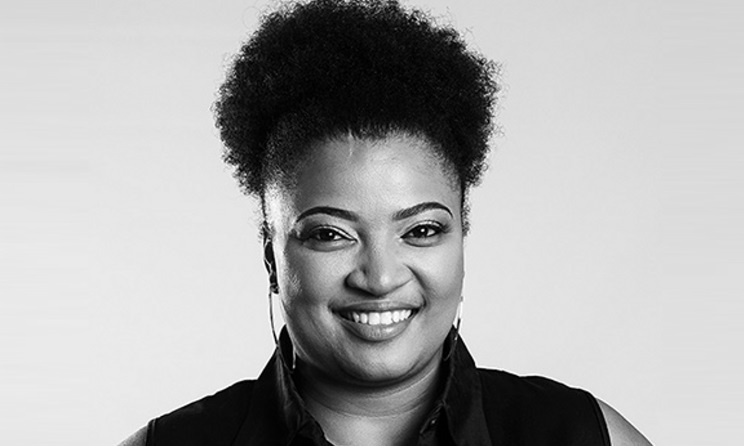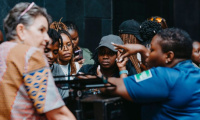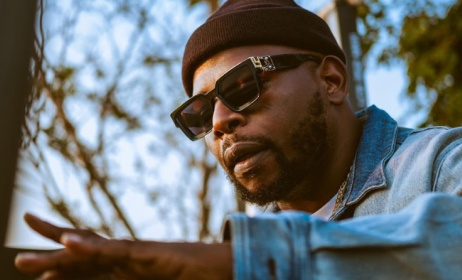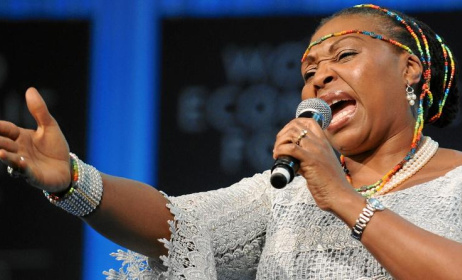New SAMAs chairperson ready to change awards' perception
The Recording Industry of South Africa (RiSA) appointed Ntuthuko Mdluli as the new chairperson of the South African Music Awards (SAMAs) on 29 January. Mdluli, who doubles up as vice-chairperson of RiSA, took over from Thobela Ndlamini and is the first woman to chair the SAMAs.
 Ntuthuko Mdluli is the new South African Music Awards chairperson.
Ntuthuko Mdluli is the new South African Music Awards chairperson.
Mdluli has been at the helm of a number of music projects and has vast experience in the local music space. A vocalist in her own right, she was a founding member of Jaziel Music Productions in 2005 and has developed and executed strategies for musicians such as Jaziel Brothers, Tsoakae, Nathi, Bongi & Collin and Lesego.
Mdluli has extensive knowledge of the South African industry and has been instrumental in implementing incubation projects for recording artists working on projects such as Soul City and Soul Buddyz.
Music In Africa caught up with Mdluli to talk about her new appointment, what she intends to achieve and her thoughts about the South African music industry.
MUSIC IN AFRICA: How do you feel in your new position as SAMAs chairperson?
NTUTHUKO MDLULI: It’s humbling and it’s an honour to serve the recording industry, and I hope I can live up to its expectations.
What do you intend to achieve as the chairperson of the SAMAs?
If there is anything to achieve it would be the perception of the integrity of the SAMAs. I’m not entirely new to the organisation having previously served in various SAMAs committees. I hope to bring accountability because it’s important for the music industry to trust us. When one looks at social media and whenever you speak to industry colleagues, you come across elements of mistrust and it’s important for us to address this.
What do you like and dislike about working in this industry?
What I like most is that despite the challenges we face, our industry keeps producing new stars. Every year we have two or three developing artists who break through, without fail. For example, 2017 gave us Lady Zamar, Shekhinah and the Distruction Boyz. They all made a huge impact and it will be difficult to think of 2017 in the future and not remember them or their music.
What I dislike most is that major media platforms like radio, TV and print still contend with the reality of the preference given to music from outside. I recently noticed how it took Hugh Masekela to first die before he could get to No 1 with one of his hit songs on the radio charts. We should do better by supporting our own creations as a country. This situation is not sustainable.
What is the state of the SA music industry?
The biggest challenge is probably insufficient airplay, which impacts not only on the brand extension of artists but in their earnings too. South Africa literally exports the bulk of the money generated from airplay, because our stations play music from overseas so much. Other challenges are limited opportunities to tour. I think only the Afrikaans music scene has a touring culture and it's great to see those artists being able to connect with their fans like that. I just wish their model could work for the greater South African music industry.
The other thing that's difficult is access to the market. Once an independent artist has hustled to record their music, they find that releasing it into the mainstream is even more difficult. Distribution channels are controlled by a few companies and formal retail spaces shrink and more music shops continue to close down.
Then there's piracy, which is a never-ending problem. There are youngsters selling pirated CDs at every main intersection in the streets of our townships and taxi ranks. Digital piracy is even worse. Young people prefer to deplete their data by pirating music online instead of legal access to music. It literally takes the same effort to buy online than to pirate, yet there are tens of millions of illegal downloads. It's shocking.
The SA music industry has experienced changes in the past. What changes have you seen and how will the industry look in five years?
The big changes have probably been the inroads made by technology and the deterioration of the traditional retail outlets. There are positives and negatives in all of this and I think these changes will accelerate more rapidly over the years. The other thing that will continue to happen is that of artists becoming their own bosses by investing and sustaining their labels. Independence is key if our industry is to grow.
Where do you see the SAMAs in the next five years and what do you intend to bring?
In my role as the chairperson, I hope to bring a greater sense of accountability to the industry, more transparency and to improve the general integrity of the SAMAs by addressing some of the issues that we face such as mistrust and misinformation. We need more participation in the industry, particularly artists who are label owners, and I hope I can leave this role having made it easier for all of us.
The SAMAs in five years? Well, we are aspirational and with the support of sponsorships, hopefully we can emulate the more esteemed global music awards events. I think that's what our audiences want to see from us and hopefully one day we can get the financing that matches the kind of productions they have.




























Comments
Log in or register to post comments